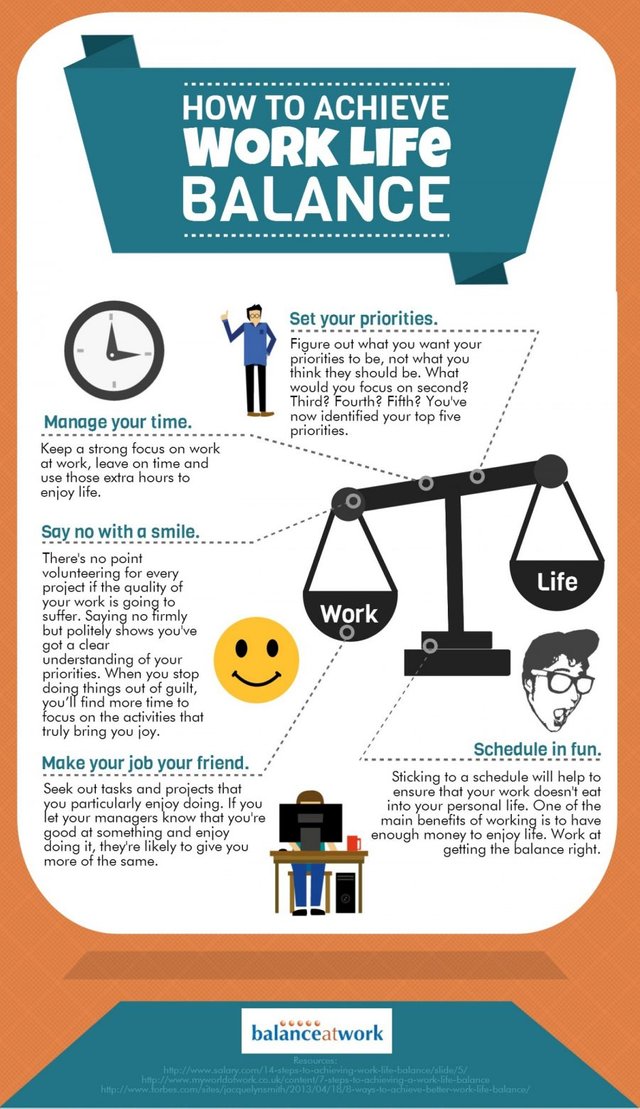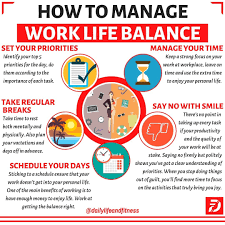How to Achieve Work-Life Balance

In today's fast-paced and demanding world, achieving a balance between work and personal life has become increasingly important. Many individuals find themselves struggling to manage their time effectively and maintain a healthy equilibrium between their professional and personal responsibilities. However, with proper planning and prioritization, it is possible to achieve a better work-life balance. Here are some strategies to help you achieve that balance:

Set clear boundaries: Establish clear boundaries between your work and personal life. Determine specific working hours and strive to stick to them. Avoid bringing work-related tasks or thoughts into your personal time, and vice versa. Creating a separation between these two aspects of your life will help you maintain focus and reduce stress.
Prioritize your tasks: Learn to prioritize your tasks effectively. Identify the most important and urgent tasks that require your immediate attention. By focusing on high-priority items, you can avoid spending excessive time on less important activities. This will enable you to complete your work efficiently and have more time for personal pursuits.
Delegate and outsource: Recognize that you don't have to do everything by yourself. Delegate tasks that can be handled by others, whether it's at work or in your personal life. If possible, outsource certain responsibilities, such as household chores or administrative tasks, to create more time for activities that bring you joy and relaxation.

Practice effective time management: Develop good time management skills to make the most of your available time. Use tools like calendars, to-do lists, or productivity apps to schedule your tasks and allocate time for different activities. Avoid procrastination and aim for a balance between productivity and breaks to maintain your energy levels throughout the day.
Nurture self-care: Make self-care a priority in your life. Engage in activities that promote your physical, mental, and emotional well-being. Regular exercise, healthy eating, sufficient sleep, and relaxation techniques like meditation or hobbies can help you recharge and manage stress effectively.
Communicate openly: Effective communication is key to maintaining work-life balance. Clearly communicate your expectations and boundaries with your colleagues, supervisors, and loved ones. If you feel overwhelmed, don't hesitate to ask for support or help when needed. By openly communicating your needs, you can avoid unnecessary stress and create a supportive environment.
Learn to say no: It's essential to set limits and learn to say no when necessary. Overcommitting yourself can lead to burnout and hinder your ability to maintain balance. Prioritize your well-being and learn to decline requests or commitments that don't align with your priorities or capacity.
Foster positive relationships: Cultivate meaningful relationships both at work and in your personal life. Spending quality time with loved ones, friends, and colleagues can contribute to your overall happiness and well-being. Building a strong support network can provide the necessary emotional support during challenging times and help you maintain a healthy work-life balance.
Remember, achieving work-life balance is an ongoing process that requires conscious effort and adaptability. It may not be possible to achieve a perfect balance at all times, but by implementing these strategies, you can create a healthier and more fulfilling life that incorporates both work and personal well-being.